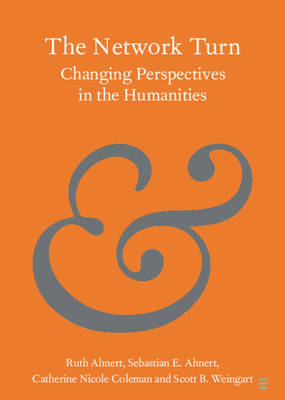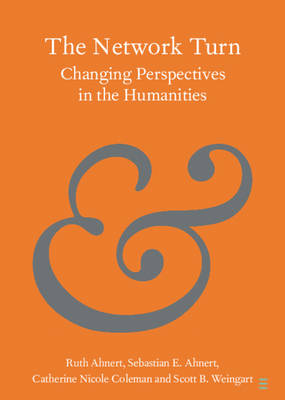
- Afhalen na 1 uur in een winkel met voorraad
- Gratis thuislevering in België vanaf € 30
- Ruim aanbod met 7 miljoen producten
- Afhalen na 1 uur in een winkel met voorraad
- Gratis thuislevering in België vanaf € 30
- Ruim aanbod met 7 miljoen producten
Zoeken
The Network Turn
Changing Perspectives in the Humanities
Ruth Ahnert, Sebastian E Ahnert, Catherine Nicole Coleman
€ 25,95
+ 51 punten
Omschrijving
We live in a networked world. Online social networking platforms and the World Wide Web have changed how society thinks about connectivity. Because of the technological nature of such networks, their study has predominantly taken place within the domains of computer science and related scientific fields. But arts and humanities scholars are increasingly using the same kinds of visual and quantitative analysis to shed light on aspects of culture and society hitherto concealed. This Element contends that networks are a category of study that cuts across traditional academic barriers, uniting diverse disciplines through a shared understanding of complexity in our world. Moreover, we are at a moment in time when it is crucial that arts and humanities scholars join the critique of how large-scale network data and advanced network analysis are being harnessed for the purposes of power, surveillance, and commercial gain. This title is also available as Open Access on Cambridge Core.
Specificaties
Betrokkenen
- Auteur(s):
- Uitgeverij:
Inhoud
- Aantal bladzijden:
- 75
- Taal:
- Engels
- Reeks:
Eigenschappen
- Productcode (EAN):
- 9781108791908
- Verschijningsdatum:
- 21/01/2021
- Uitvoering:
- Paperback
- Formaat:
- Trade paperback (VS)
- Afmetingen:
- 127 mm x 178 mm
- Gewicht:
- 127 g

Alleen bij Standaard Boekhandel
+ 51 punten op je klantenkaart van Standaard Boekhandel
Beoordelingen
We publiceren alleen reviews die voldoen aan de voorwaarden voor reviews. Bekijk onze voorwaarden voor reviews.











